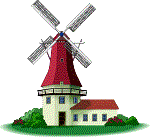

 |
Modules |
 |
|
|
|
|
|
|
From "Animal Farm"
"Four legs good, two legs bad."
"Beasts of England, beasts of Ireland,
Beasts of every land and clime,
Hearken to my joyful tiding
Of the golden future time."
"At this there was a terrible baying sound outside, and nine enormous dogs wearing brass-studded collars came bounding into the barn. They dashed straight for Snowball, who only sprang from his place just in time to escape their snapping jaws."
"All animals are equal, but some animals are more equal than others."
"If you have your lower animals to contend with," he said, "we have our lower classes!"
|
|
|

"Animal Farm" by George Orwell
Topic(s)
- "Animal Farm" by George Orwell
Resources
 = Compulsory
Related resources:
What to do...
| Mål: eleven skal |
| 1e |
kunne drøfte og vurdere skjønnlitterære tekstar
|
| 4b |
munnleg og skriftleg kunne analysere og drøfte innhald, personar og tema og vise korleis litterære verkemiddel er brukte i eit representativt utval tekstar frå tida etter 1900.
|
1)
Study The Soviet Period carefully extracting the persons and events that you find relevant to "Animal Farm".
Give a general presentation of as many parallels between "Animal Farm" and Russian history as possible.
If you want more detailed information you may read about The Russian Revolution of 1917 and The Russian Civil War.
2)
Some study questions:
- Compare and contrast Napoleon and Snowball. What techniques do they use in their struggle for power? Does Snowball represent a morally legitimate political alternative to the corrupt leadership of Napoleon?
- Why do you think Orwell chose to use a fable in his condemnation of Soviet communism and totalitarianism? Fiction would seem a rather indirect method of political commentary; if Orwell had written an academic essay, he could have named names, pointed to details, and proven his case more systematically. What different opportunities of expression does a fable offer its author?
- From whose perspective is Animal Farm told? Why would Orwell have chosen such a perspective?
- How does Orwell explore the problem of rhetoric in Animal Farm? Paying particular attention to the character of Squealer, how is language used as an instrument of social control? How do the pigs rewrite history?
- Discuss Boxer. What role does he play on the farm? Why does Napoleon seem to feel threatened by him? In what ways might one view the betrayal of Boxer as an alternative climax of the novel (if we consider Napoleon's banishment of Snowball and the pigs' initial consolidation of power as the true climax)?
- Do you think Animal Farm's message would come across effectively to someone who knows nothing about Soviet history or the conflict between Stalin and Trotsky? What might such a reader make of the story?
- Of all of the characters in Animal Farm, are there any who seem to represent the point of view of the author? Which of the animals or people do you think come(s) closest to achieving Orwell's perspective on Animal Farm?
- Who is the most sympathetic character in the book? How does Orwell encourage our sympathy for him/her? How does that sympathy contribute to the political message of the book?
- Would things have turned out differently if Snowball had won the power struggle with Napoleon? Are there any clues in the novel itself that help us decide?
- Critics have been mixed on the effectiveness of the allegorical treatment of history in Animal Farm. What are the advantages and disadvantages of telling the story of Stalinism as a fairy tale?
- Some critics have argued that Animal Farm is much more than an attack on Stalinism. What other lessons can be drawn from it?
- Usually fairy tales have a relatively simple moral lesson. What is the moral of this story?
- Is the betrayal of the revolution in spite of or because of the teachings of animalism?
3)
Discuss:
of "Animal Farm"
|

... and our Internet Service Provider is:

|
|
|